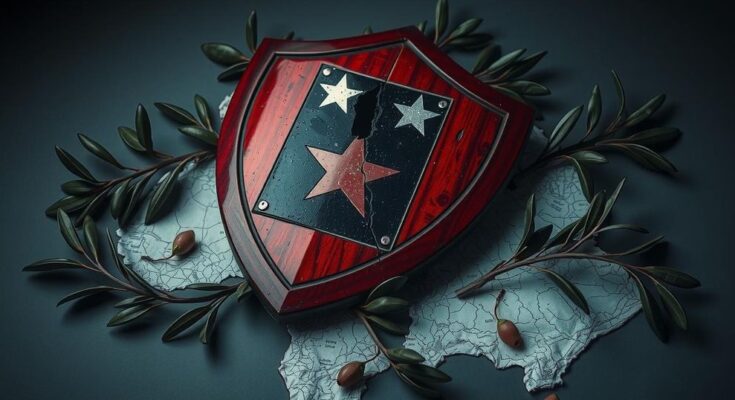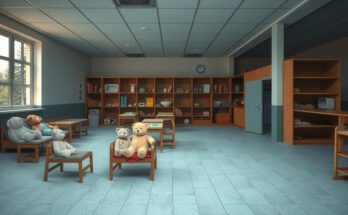Three South African peacekeepers were killed in the escalating conflict between the Congolese army and M23 fighters in eastern DRC. Despite international appeals for peace, the violence has surged, particularly around the city of Goma, leading to heightened humanitarian challenges and significant displacement of civilians. The UN has begun evacuation efforts, and the international community is exploring mediation options to address the ongoing crisis.
In recent clashes in eastern Democratic Republic of Congo (DRC), three South African peacekeepers were killed amid escalating violence between the Congolese army and M23 fighters, reportedly backed by Rwanda. This conflict has persisted despite international calls for a cessation of hostilities and follows unsuccessful peace talks led by Angola.
Goma, a vital city with over a million residents, remains under pressure as the M23 group advances towards it. An AFP correspondent noted destruction on the road to Sake, evidencing the ongoing combat, whilst daily life in Goma continued despite distant artillery fire. Fighting has intensified in several areas within ten kilometers of Goma since Thursday.
The European Union condemned Rwanda’s military involvement in this conflict, urging them to stop supporting the M23 and withdraw its forces. EU foreign policy chief Kaja Kallas described the M23’s threat to Goma as unacceptable, warning of severe humanitarian repercussions. The UN has commenced evacuations from Goma, while Britain, the United States, and France have advised their citizens to leave the region.
In South Africa, the Democratic Alliance reported the deaths and injuries of peacekeepers involved in an SADC mission who were targeted by M23 rebels in Sake. South Africa deployed 2,900 troops to support this mission earlier in 2023. The United Nations Security Council has convened an emergency session to address the escalating crisis.
UN Secretary-General Antonio Guterres has expressed concern regarding the resurgence of violence, highlighting the potential for broader regional conflict. The International Committee of the Red Cross has treated numerous individuals injured in the fighting, with over 400,000 displaced since January. The DRC is grappling with prolonged violence that has persisted for three decades, largely driven by resource disputes.
Diplomatic attempts to resolve the crisis have repeatedly failed, with recent meetings between the leaders of the DRC and Rwanda collapsing due to disagreements. The DRC accuses Rwanda of seeking control over its valuable eastern regions, a claim that Rwanda denies. Turkey has offered to mediate, following numerous failed ceasefires in this chronically unstable area.
The Democratic Republic of Congo has faced ongoing conflict for over 30 years, primarily due to struggles over the region’s vast mineral resources. Recent clashes have involved the M23 group, which is alleged to receive support from Rwanda. This current wave of violence has exacerbated a humanitarian crisis, displacing hundreds of thousands of individuals and worsening conditions in eastern Congo. The situation has drawn international attention, prompting calls for intervention and diplomacy, though previous efforts have often failed.
The violent resurgence in eastern DRC, marked by the deaths of South African peacekeepers and renewed M23 aggression, underscores the region’s continued instability and humanitarian distress. Despite international intervention efforts and condemnations of foreign support for the conflict, meaningful resolution remains elusive. The situation demands urgent attention from global leaders to prevent further escalation and to address the dire humanitarian needs within the DRC.
Original Source: www.france24.com




